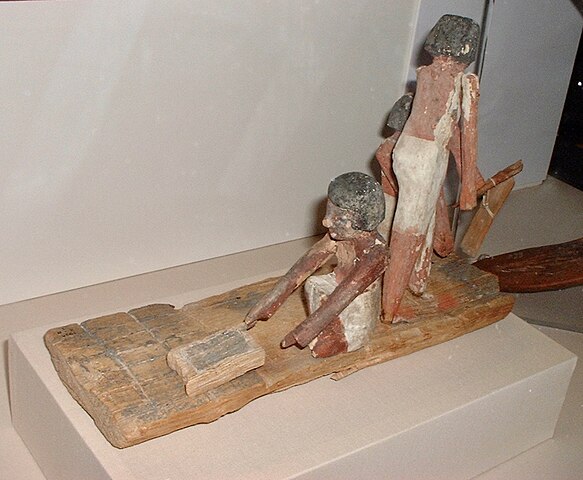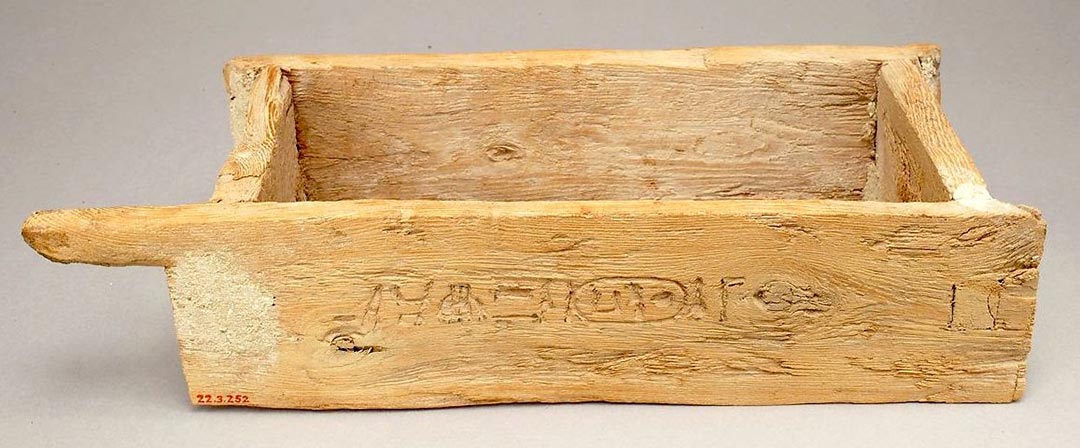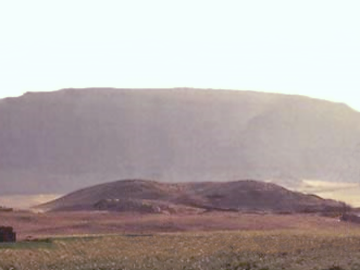
Statue of Hatshepsut wearing the Nemes headdress of the Pharaoh
https://commons.wikimedia.org/wiki/File ... ut2012.jpg
In post
post 807, I gave a date of around 1446 BC that the Israelites left Egypt.
The Bible says Moses was 80 years old when they spoke to Pharaoh.
Exod 7:7 (ESV)
Now Moses was eighty years old, and Aaron eighty-three years old, when they spoke to Pharaoh.
So then Moses would've born around 1526 BC. This would put Moses around the reign of Thutmose I.
Thutmose I's reign is generally dated to 1506–1493 BC, but a minority of scholars—who think that astrological observations used to calculate the timeline of ancient Egyptian records, and thus the reign of Thutmose I, were taken from the city of Memphis rather than from Thebes—would date his reign to 1526–1513 BC
https://en.wikipedia.org/wiki/Thutmose_I
The Oxford History of Ancient Egypt gives his reign lasting from 1504-1492 BC, while Peter Clayton indicates 1524-1518 and Monarchs of the Nile as 1503-1491.
http://www.touregypt.net/featurestories/tuthmosis1.htm
Hatshepsut was "the daughter and only child of Thutmose I and his primary wife, Ahmose."
https://en.wikipedia.org/wiki/Hatshepsut
The Bible says the daughter of Pharaoh was the one who rescued Moses from the river. This most likely would've been Hatshepsut since she was the only daughter of the reigning Pharaoh at that time.
Exod 2:5
Now the daughter of Pharaoh came down to bathe at the river, while her young women walked beside the river. She saw the basket among the reeds and sent her servant woman, and she took it.
It is reasonable to assume that Hatshepsut married Thutmosis II shortly before he assumed the throne in 1517 BC. “Hatchepsut can have been no more than 15 years old when she married her brother and became consort” (Tyldesley 1996:96). Accordingly, Hatshepsut was born ca. 1533/2 (1517 + 15 = 1532). If Hatshepsut was born in 1533/2, she was six or seven years old when Moses was born ca. 1526 BC.
https://biblearchaeology.org/research/e ... hatshepsut
One thing interesting about Hatshepsut is she would become one of the most powerful women in all of Egyptian history and ultimately would assume the position of Pharaoh.
And Moses was raised by Hatshepsut as her adopted son.
Exod 2:10
When the child grew up, she brought him to Pharaoh's daughter, and he became her son. She named him Moses, "Because," she said, "I drew him out of the water."
Acts 7:21-22
21 and when he was exposed, Pharaoh's daughter adopted him and brought him up as her own son.
22 And Moses was instructed in all the wisdom of the Egyptians, and he was mighty in his words and deeds.
Under Hatshepsut, Moses would've received the best education in all of Egypt, which would be quite useful in order to author the Torah.
Eventually, Hatshepsut would reach the status of Pharaoh and ruled from 1498 - 1483 BC.
https://www.virtual-egyptian-museum.org ... Alpha.html
She would be co-ruler along with Thutmose III, who ruled from 1504 - 1450 BC.
"Thutmose III ruled from 1479 B.C.E. to 1425 B.C.E. according to the Low Chronology of Ancient Egypt. This has been the dominant theory in academic circles since the 1960s,[7] yet in some academic circles the dates 1504 B.C.E. to 1450 B.C.E. are still preferred."
https://www.newworldencyclopedia.org/entry/Thutmose_III
Moses had tried to initially help his fellow Hebrews, but failed.
Exod 2:13-14
13 When he went out the next day, behold, two Hebrews were struggling together. And he said to the man in the wrong, "Why do you strike your companion?"
14 He answered, "Who made you a prince and a judge over us? Do you mean to kill me as you killed the Egyptian?" Then Moses was afraid, and thought, "Surely the thing is known."
Moses then fled Egypt to escape from Thutmose III.
Exod 2:15 (ESV)
When Pharaoh heard of it, he sought to kill Moses. But Moses fled from Pharaoh and stayed in the land of Midian.
Thutmose III was one of the longest reigning Pharaohs of Egypt.
According to later king lists, Pepi II ruled for 94 years around 2200 BCE. However, contemporary documents only go up to the seventh decade of his reign, and it is not certain that he really ruled for that long. The longest fully documented reign is the 67 years of Rameses II, who came to the throne in 1279 BCE and built more temples than any other pharaoh. The next place is a tie between Thutmose III (1479 BCE) and Psamtik I (664 BCE), both of whom ruled for 54 years.
https://www.howitworksdaily.com/who-was ... -of-egypt/
Since Moses was in Midian for 40 years to escape from the Pharaoh, the only two possible kings with such a long reign would either be Thutmose III or Rameses II. This would correlate with either the late date or the early date of the exodus.









